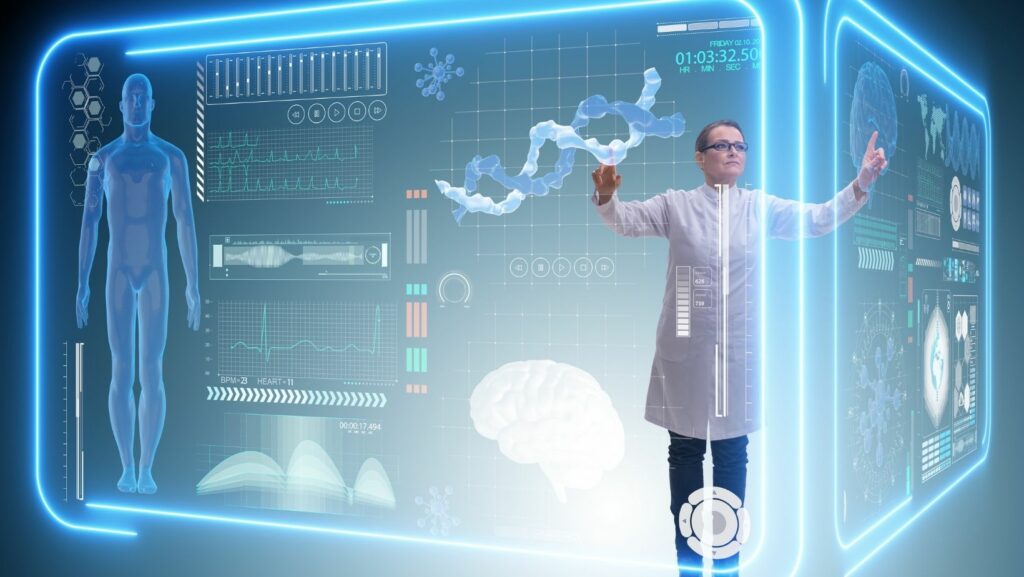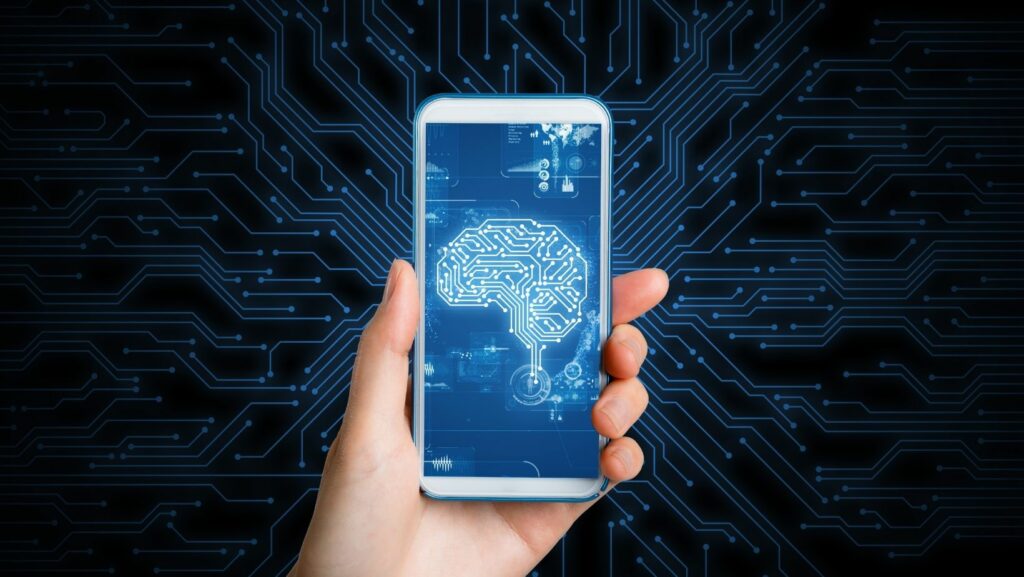The adoption of artificial intelligence (AI) in healthcare has been swift, bringing significant advancements in patient care and operational efficiency. However, not all healthcare professionals are welcoming these changes with open arms. Nurses, in particular, are expressing concerns about the widespread adoption of AI in nursing.
New surveys highlight the pace at which nurses are becoming obsolete. NurseJournal reveals AI can handle up to 30% of nurses’ organizational duties. According to FOXBusiness, Nvidia’s bots outclass human nurses on video calls and cost under $10 per hour. The company disclosed its bots outperform their human counterparts by 16% in calculating a medication’s effect on lab readings.
Likewise, it overwhelms humans by 43% in accurately contrasting a lab benchmark to a chosen spectrum. It is also 14% more efficient in detecting fatal volumes of over-the-counter medications. These growing concerns have led to nationwide protests and calls for stricter oversight of AI in healthcare settings.
From potential risks to patient safety to job security fears, many nurses are calling for a more cautious approach to AI implementation.
The Rise of AI in Nursing
AI technology has found numerous applications in nursing. It helps streamline administrative tasks, like patient scheduling, and supports clinical decisions by analyzing large data sets. For instance, AI-driven algorithms can analyze medical images to detect early signs of cancer or other conditions more quickly than a human could.

According to Stanford Medicine, deep learning AI algorithms can improve the accuracy of skin cancer diagnosis. Practitioners not using AI correctly flagged nearly 75% of people for skin cancer. Likewise, they accurately identified about 81.5% of patients with cancer-like skin symptoms but didn’t have cancer. In contrast, doctors who used AI identified 81.1% for skin cancer and 86.1% for cancer-like symptoms.
While a 5-6% increase seems insignificant, it means everything to those who have cancer but aren’t diagnosed, and vice versa. The study also reveals medical trainees, nurses, and general care doctors gained the most from AI assistance. This means AI can enhance anyone’s efficiency, regardless of their experience level.
While these technologies promise to improve accuracy and reduce workloads, they come with caveats. As promising as AI may seem, it’s crucial to consider the potential drawbacks and ethical implications. While AI can manage tasks efficiently, it lacks a nurse’s empathy and critical thinking in patient care.
Concerns Over Patient Safety
One of the primary concerns nurses have about AI is its potential to compromise patient safety. A National Nurses United 2024 survey revealed that many nurses believe AI technologies could lead to mistakes in critical patient care areas. 3 in 5 respondents said they were unsure if their employer would implement a patient safety-centric AI.
50% of respondents disclosed that their employer used algorithms to analyze the extent of patient illness and quantify patient care time. Among these nurses, nearly 70% said the algorithm’s assessment doesn’t match that of a nurse’s. Similarly, 12% of nurses revealed AI systems processed their handoffs. However, nearly 50% said the system’s evaluations were way off compared to their findings.
While powerful, AI systems can make errors, especially when handling complex or nuanced cases that require human judgment. These concerns are heightened by the lack of stringent regulations governing AI in healthcare. Thus, making nurses wary of untested AI systems being introduced into hospitals.
California nurses have already voiced their apprehensions by protesting against the premature deployment of AI technologies that haven’t undergone adequate testing. The protests emphasize the need for safety safeguards before integrating AI into everyday healthcare practices.
Job Security and the Human Touch
AI’s growing role in nursing also raises fears about job security. As AI takes over administrative and some clinical tasks, nurses worry that their roles may be diminished or even replaced in certain areas.
Beyond job security, there’s concern that the essential human touch in caregiving could be lost. Nursing is not just about performing tasks; it’s about connecting with patients. This human interaction is crucial for providing comfort and understanding, which AI cannot replicate. AI is particularly adept at handling repetitive tasks, which could free nurses to focus more on patient care.
However, the fear remains that over-reliance on AI might reduce the need for human nurses in the long run. Balancing technology with human care is critical, as the relational aspect of nursing is irreplaceable.
Training and Education
As AI continues to integrate into healthcare, nurses are finding it increasingly important to stay updated on the latest technologies. The rapid pace of change means traditional educational pathways may not always suffice. This is where online accelerated nursing programs become essential.
These programs offer a fast-tracked, flexible route for aspiring nurses to enter the profession. According to Online ABSN Programs, these programs are ideal for those wanting a career change. They help gain the foundational skills required in today’s tech-driven healthcare environment. Moreover, they’re targeted toward non-nursing bachelor’s degree holders. By completing these programs, new nurses can enter the workforce prepared to engage with AI tools.
These programs provide core nursing education and expose students to the evolving role of technology in patient care. As nurses begin their careers with a solid understanding of traditional and modern healthcare practices, they are better equipped to adapt to AI. Proper education and training ensure nurses work alongside AI, using it to enhance, rather than hinder, their ability to deliver compassionate and effective care.
Furthermore, by staying informed and involved, nurses can play a pivotal role in guiding the ethical integration of AI in healthcare. This ensures it serves the best interests of patients.
The Push for Regulatory Framework
California nurses led major protests in 2024 against untested AI in healthcare. In April 2024, over 200 people rallied around Kaiser Permanente’s San Francisco Medical Center. They allege that Kaiser Permanente, a pioneer in AI in health care, is pressing to deploy experimental and unregulated AI. The nurses demand proper testing before AI implementation and want clear rules about when and how to use AI in patient care.

The National Nurses United proposed new safety guidelines in 2024. These include the rights to high-quality person-to-person care, safety, privacy, and transparency. Other rights include autonomy, exercising professional judgment, and collective advocacy for workers and their patients. These rights oppose unfair AI and software systems, including automated worker surveillance and management (AWSM) systems and clinical decision support systems (CDSS).
Without proper rules, hospitals might prioritize efficiency over patient safety. This creates unnecessary risks in healthcare delivery.
People Also Ask
Q1. How Do Nurses Benefit From Ai In Their Daily Work?
AI helps nurses by automating routine paperwork, monitoring patient vitals 24/7, and flagging potential medication interactions. This allows nurses to spend more time on direct patient care and complex decision-making, leading to better healthcare outcomes and job satisfaction.
Q2. What Skills Do Nurses Need To Work With Ai Systems?
Nurses can prepare by educating themselves on AI technologies, participating in digital literacy training programs, and staying informed about emerging AI applications in healthcare. This proactive approach helps them collaborate with AI tools while maintaining high-quality patient care.
Q3. What Role Do Nurses Play In Ai Development For Healthcare?
Nurses can actively participate in AI design by providing real-world insights and testing new healthcare technologies. Their hands-on experience helps developers create more practical and user-friendly AI tools. This ensures the technology addresses actual clinical needs rather than theoretical solutions.
AI is undoubtedly reinventing the healthcare arena, offering countless incentives. However, the road ahead requires innovation and caution. Nurses’ concerns about patient safety, job security, and the ethical use of AI are valid and deserve attention. By addressing these issues through proper regulation, training, and moral standards, healthcare can ensure AI remains an asset, not a threat, to nursing.
The future lies in balancing AI and human care without compromising the quality and empathy that are the hallmarks of the profession. The dialogue between nurses, technologists, and policymakers must continue to ensure that AI enhances, rather than hinders, the noble art of nursing.



